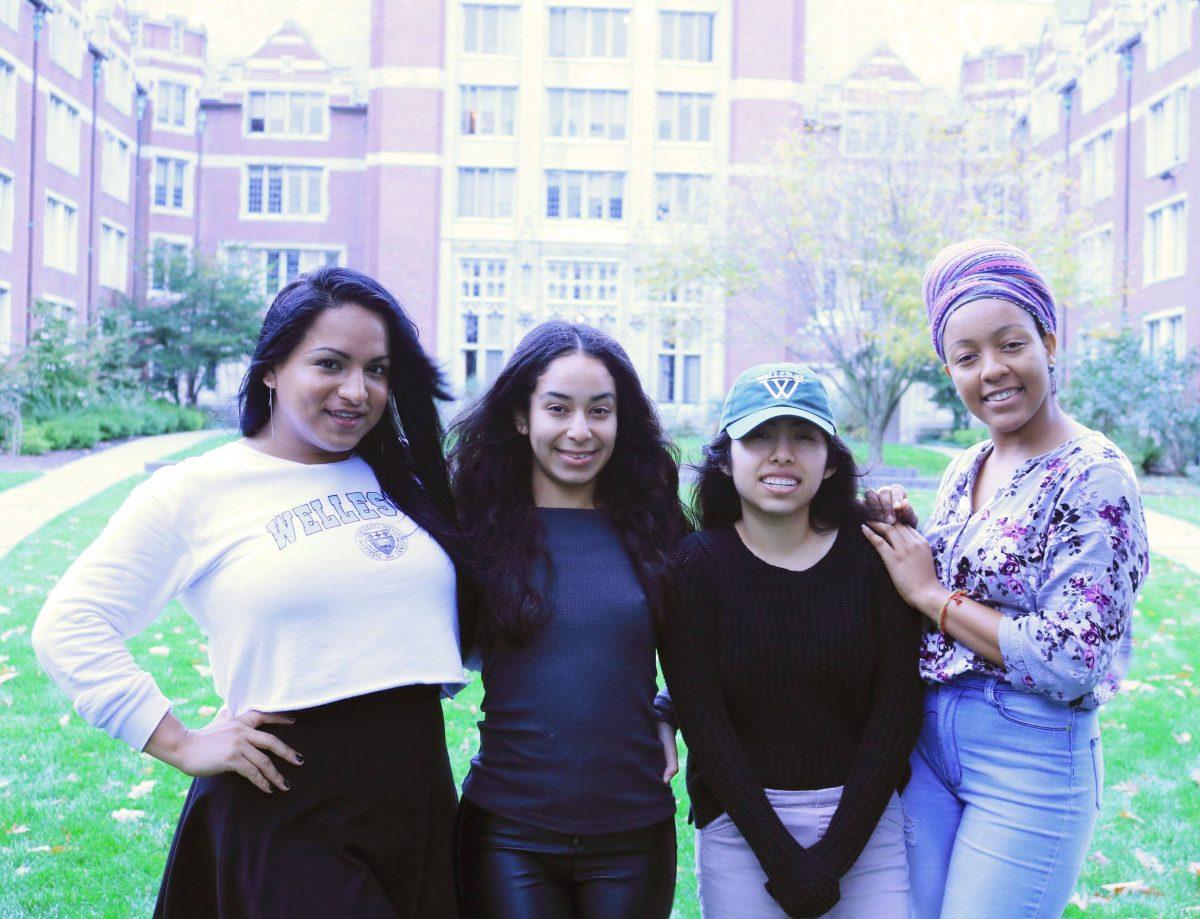Founded in 2006 with the aim of transferring low-income Black, Hispanic and Native American students at New York community colleges to competitive four-year universities across the country, the Kaplan Leadership Program provides support throughout the college application process. Wellesley’s current Kaplan Scholars are sophomore Davis Scholar Melanie Poggi, junior Davis Scholar Ninotska Love, Tiffany Garcia ’21 and Karen Alvarez ’21.
“[The program] helped us understand our strengths and gave us the resources we needed to improve upon our weaknesses. In many ways it helps even the playing field against our more financially stable peers who have such resources at their disposal,” said Garcia, who started on the premed track at the Borough of Manhattan Community College, but is currently exploring more options at Wellesley.
The Kaplan Leadership Program is highly competitive, and only accepts seven students per year. Students can be any age — ranging from 18-year-olds to students in their 30s and 40s — but must have completed one year at their two-year community college by the time they apply. The program looks for students who have demonstrated qualities like persistence, leadership and a desire to help others. They enter four-year universities with associate degrees.
“As a Kaplan Scholar, you’re required to apply to at least 10 colleges. Most students in the program have never thought of transferring to colleges out of state, so this is an opportunity to expand our horizons and dream big,” said Poggi, who also graduated from the Borough of Manhattan Community College. At Wellesley, Poggi plans to double-major in political science and theater.
The program provides writing and math tutors, college essay tutors, financial support and group trips to colleges that the scholars are thinking of applying to. The Kaplan Scholars meet at least once a week for an entire day and discuss everything from current events to the obstacles they face.
“[A typical meeting] was a reflection on how the week went, then we would present an article we thought was interesting to our cohort. We would then be given tasks to complete by our transfer adviser Deb Shames and writing coach David Green,” said Garcia. “Sometimes we would have guest speakers who would come and tell us about their academic and professional journey.”
In addition to academic and financial support, the program also provides students a close-knit network that supports them on a personal level. All the Kaplan Scholars at Wellesley feel as though the program has provided them with a family, which includes their mentors, students in their own cohort and the cohorts that came before them. For instance, though Love transferred to Wellesley before Poggi, Garcia and Alvarez, the four have a close relationship.
Love, now a women’s and gender studies major looking to pursue a teaching certificate, graduated from LaGuardia Community College after coming to the United States from Ecuador as an asylum seeker. Not only is she Wellesley’s first Kaplan Scholar, but she is also one of the first openly transgender women accepted to Wellesley. In 2016, when she applied, she found out there were no openly transgender women at the college; nevertheless, Love knew that this was the place for her.
“Wellesley was always in the back of my mind. I came to Wellesley, I visited and I just fell in love with it,” said Love.
Considering that there are only seven students per year in the program, the four Kaplan scholars at Wellesley make up a significant percentage.
“Wellesley is becoming a school that [Kaplan Scholars] see because … sometimes we don’t feel that we’re going to belong, that we’re going to feel comfortable,” said Alvarez, who graduated from Bronx Community College and is interested in pursuing a career in healthcare. “But now, once you see that a student from New York, that came from the Dominican Republic, whose first language is not English, is in this school, that’s opening the door for them to say hey, I can do it!”
As Wellesley’s first Kaplan Scholar, Love feels a huge responsibility on her shoulders as she looks out for Alvarez, Garcia and Poggi.
“I just want to make sure that all is fine, I feel like their mother of some sort. Not because I’m older … but it’s just that since I’m here first, I have to make sure they navigate the system that I figured out for myself,” said Love. “I think it would have been nice for me to have someone here who was older. But at the same time, it felt great to build that for myself.”
From the very beginning, the Kaplan Scholars get to know each other intimately through talking about their personal lives and going on long road trips together.
“By the time you are off to your four-year college, you have a support network which follows you everywhere,” said Poggi.
Alvarez remembers that when she graduated from Bronx Community College, she had not expected anyone at the ceremony, since her family lives in the Dominican Republic and she sometimes felt alone in New York. However, she was surprised on graduation day.
“When they called my name, my friends from Kaplan, they were back there cheering and screaming, and I was like: No way! And it was too much, it made my day, my entire day,” she said.
The Kaplan Leadership Program prepares its scholars to tackle whatever challenges may come next.
“Being a Kaplan Scholar taught me how to advocate for myself. Kaplan taught me to believe in myself, to dream big, to make goals that are somewhat scary,” said Poggi. “Kaplan also taught me how to put a goal into action and not just have a wishlist. It is important to provide students this outlet because we have mostly been told our whole lives we can’t.”
Alvarez also felt that the Kaplan Leadership Program was an important stepping stone in her life.
“I can say that Kaplan is the step in between what you want to achieve and how to achieve it,” she said.






